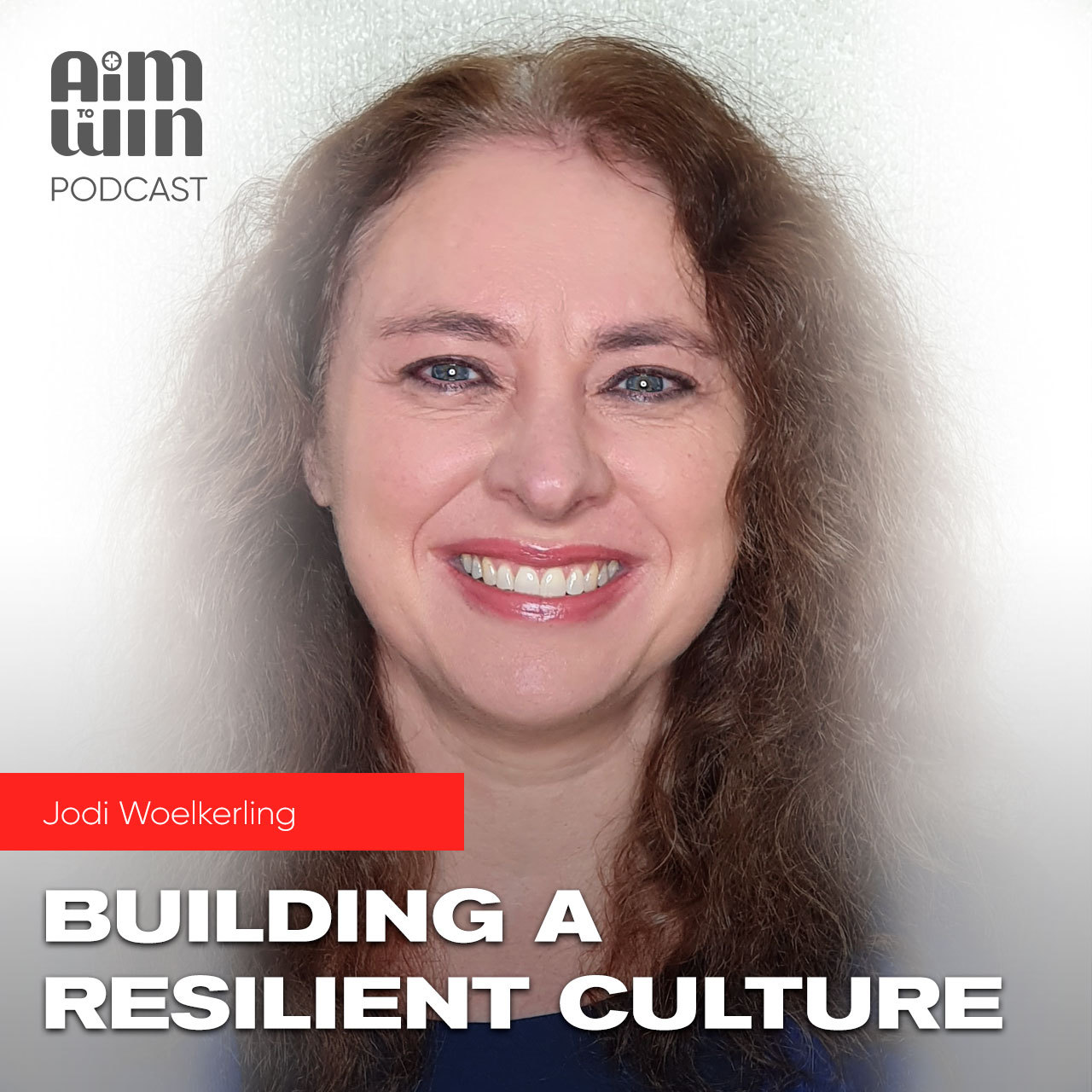Listen to the episode right here.
Decades of experience in the corporate world has shown Jodi Woelkerling that resiliency is a key feature of every enduringly successful individual and every organizational culture that is productive and collaborative over the longer term.
The modern workplace is filled with constant challenges and competing priorities, both for the business at large and for the individuals within the business, and resilience is a key component of effectively navigating these challenges.
Jodi is passionate about assisting businesses to build an enduring resilient culture at the whole culture level, the various levels of leadership within the business and at the individual level, so that the business as a whole and the individuals within the business can experience the enormous benefits of an enduring resilient culture.
Jodi Woelkerling Podcast Highlights
Who is Jodi Woelkerling?
Jodi specializes in resilience for both individual leaders and organizations, and that came about from her own struggle with resilience. Her path of discovery in figuring out the optimal quality of life balance naturally morphed into her helping other people do the same.
Why do we need resilience?
On an individual level, stress is so common in society that we don’t even realize how stressed out we are. Jodi helps people see the effects of stress on their life and work and shows them techniques to reduce its impact and manage their quality of life more effectively.
In organizations, stress at the individual level causes high turnover and lack of productivity. The lack of a culture of psychological safety prevents collaboration and risk avoidance, and leads to people feeling like they aren’t being supported and cared for.
How can an organization tell they have a resilience problem?
A high staff turnover is a key indicator to look out for. If staff are happy, they aren’t looking for work elsewhere and they are more productive.
You can also get a sense of the culture by observing people interact. You can tell a lot simply by looking at whether people are smiling and happy while at work. Have conversations with your staff and ask how they are.
The remote work situation we are in right now makes this a bit harder. You have to be intentional about checking in with your team.
What are the first steps you should take when you see the signs?
The first step is taking the time to really find out what is going on, then creating a plan that addresses that. If you guess and start an initiative to solve a problem that doesn’t exist, it’s not going to work.
Many organizations are fooling themselves. Try to frame what you see around the priorities of the organization and if necessary, bring an outside perspective to the problem.
Admitting You’re Stressed
People who are stressed will often have trouble sleeping and will feel on edge most of the time. Your body will generally give you signs and if you tune into what your body is telling you, you will feel the stress in certain areas like your shoulders or stomach.
Simply asking whether you are happy is a good start.
The stress response is largely physiological, so breathing exercises can bring your body back into a calm state. Getting your sleep, diet, and exercise dialed in will generally reduce stress, alongside activities like yoga.
When you’re stressed, there are usually underlying unconscious issues that you will have to deal with like perfectionism.
Recognize the times that you’re stressed, and find what works for you to bring you back into a calm state of mind.
Creating an Environment of Psychological Safety
Psychological safety doesn’t happen by default. Leaders can work to create an atmosphere where people feel comfortable voicing their authentic opinions by being intentional and explicit that you’re trying to create that space.
When someone does make a mistake, avoid responding in an overly negative or critical way. Doing that shows other people that mistakes are punished and will make them more cautious and less creative.
Mistakes happen, and leaders need to figure out the root cause. If the culture is good, you can stay connected enough to discover the truth and address it properly. At an individual level, the right response may be to have a conversation with them on whether they really want to be in that role.

